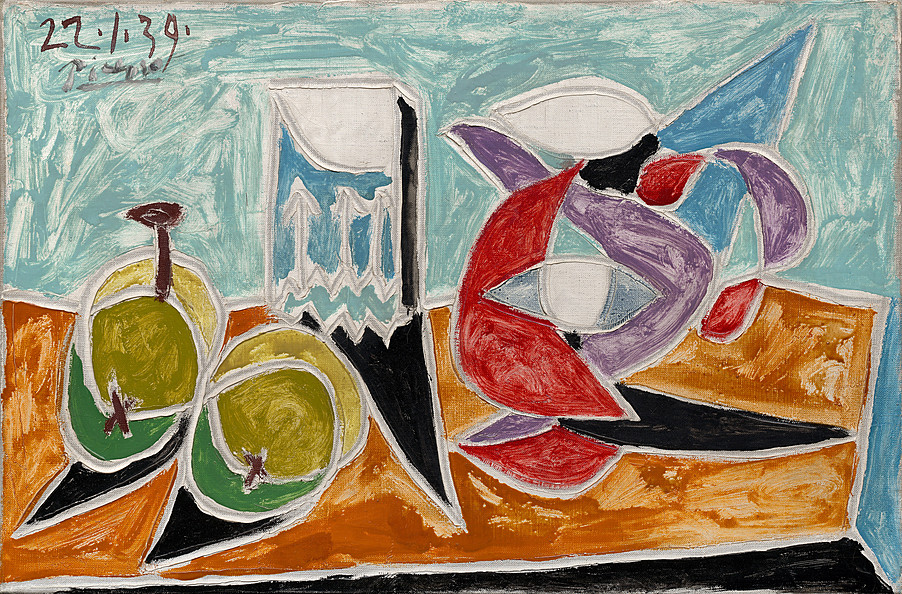art-Picasso.com
Pablo Picasso 1881-1973
©Pablo Picasso - 1939 Still Life Fruits and Pitcher
 Still Life Fruits and Pitcher |
From Solomon R. Guggenheim Museum, New York:
The two late 1930s still lifes, Still Life: Fruit Dish and Pitcher (Nature morte: compotier et cruche, January 21–22, 1937) and Still Life: Fruits and Pitcher (Nature morte: fruits et pot, January 22, 1939), fundamentally elaborate Pablo Picasso’s unique approach to Cubism. The latter is a lyrical hymn to joie de vivre, and in retrospect derives a particular poignancy for having been painted just a few months before the outbreak of World War II. With its ample geometry and resonant colors, the earlier still life is more imposing. The table and the objects on it are presented as if they are surging forward on the crest of a wave. The effect is in part due to the daringly simple background, divided into two halves of slightly different browns, against which the vividly colored table and objects appear to float. This evocation of a space dynamically moving forward is not arrived at by any kind of calculated perspectival construction but depends on the interaction of all the colors and forms of the painting. The conjunction of the two brown “walls” clearly dictates the color shifts that occur in the two nearly symmetrical halves of the image and sets the objects into sharp relief; at the same time, it creates the illusion of separating the fruit dish and the pitcher, an isolating effect that is in full accord with the Spanish still-life tradition.